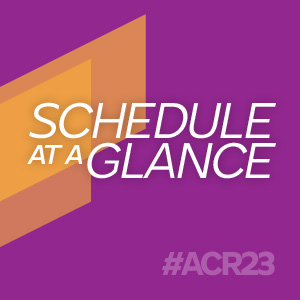Poster Session B
Systemic lupus erythematosus (SLE)
Session: (0899–0933) SLE – Etiology & Pathogenesis Poster
0904: KYV-101, a Fully Human Anti-CD19 CAR T Cell Therapy, Demonstrates CAR-Mediated and CD19-Dependent Activity Against Autologous B Cells from Patients with Autoimmune Disease
Monday, November 13, 2023
9:00 AM - 11:00 AM PT
Location: Poster Hall
- TV
Tom Van Blarcom, PhD
Kyverna Therapuetics
Emeryville, CA, United StatesDisclosure information not submitted.
Abstract Poster Presenter(s)
Soo Park1, Gloria Lutzny-Geier2, Natalia Giltiay1, Jazmin Bravo1, Simone Sandoval1, Joseph Cheng1, Catherine Dong1, Nicole Khoshnoodi1, Ames Register1, Daniel Anaya1, Michael Aigner3, Andreas Mackensen3, Georg Schett4, Charles Kaplan1, Dominic Borie1, James Chung1 and Tom Van Blarcom5, 1Kyverna Therapeutics, Emeryville, CA, 2Friedrich Alexander Universität Erlangen-Nürnberg and Universitätsklinikum Erlangen, Erlangen, Germany, 3Department of Internal Medicine 5, Hematology and Oncology, Universitätsklinikum Erlangen and Friedrich-Alexander-Universität Erlangen Nürnberg, Erlangen, Germany, 4Friedrich-Alexander-Universität Erlangen-Nürnberg, Erlangen, Germany, 5Kyverna Therapuetics, Emeryville, CA
Background/Purpose: A significant unmet need remains in the treatment of relapsed and/or refractory B cell-driven autoimmune diseases, including systemic lupus erythematosus (SLE),systemic sclerosis (SSc), and idiopathic inflammatory myopathy (IIM). The presence of autoantibodies is a hallmark of such diseases and implicates dysregulated B cell function in their pathogenesis. The central role of B cells in these diseases is also supported by the presence of B cells in diseased tissues. We have recently shown that anti-CD19 chimeric antigen receptor (CAR) T cells are well tolerated and highly effective in patients with B cell-driven autoimmune diseases including SLE, IIM,and SSc (Mackensen Nat Med 2022, Muller Lancet 2023, Bergman Ann Rheum Dis 2023).KYV-101 is an autologous anti-CD19 CART cell therapy designed to deplete B cells, including autoreactive B cells. Importantly, the human anti-CD19 CAR used in KYV-101 was previously tested in B-cell lymphoma patients and demonstrated similar efficacy with an improved safety and immunogenicity profile compared to historical controls (Brudno Nat Med 2020).Since anti-CD19 CART cells target and kill a broad set of B cells in both circulation and tissues, a more complete depletion of autoreactive B cells is expected with KYV-101 leading to a greater magnitude and durability of disease control than current immunotherapies. These studies examined the CAR-mediated and CD19-dependent activity ofKYV-101 against autologous, patient-derived B cells.
Methods: Autologous CD4+ and CD8+ T cells were enriched from healthy donors (HD) or SLE, SSc, or IIMpatients.KYV-101 CAR T cells were produced following transduction with a lentiviral vector encoding a fully human second generation anti-CD19 CAR. The CAR-mediated and CD19-dependent activity of KYV-101 was monitored in vitrovia cytotoxicity, cytokine release, and proliferation studies in response to CD19+ target cell lines or autologousCD19+ B cells.
Results: Following an overnight incubation, KYV-101 generated from HDs or autoimmune patients induced greater cytotoxicity against both the human CD19+ NALM6 cell line and autologous, patient-derived primary B cells than untransduced(UNTD) control T cells. An increase in the production of cytokines such as IFNγ was also observed following co-culture. In contrast, no differences in cytotoxicity nor cytokine production were observed whenKYV-101 or UNTD control T cells were co-cultured with CD19- target cell lines. In addition, following a 96-hour incubation, KYV-101 generated from HDs or autoimmune patients proliferated when co-cultured with the NALM6 cells or autologous B cells, whereas substantially lower levels of proliferation were observed in the UNTD control T cells co-cultured with NALM6 or autologous B cells, or in KYV-101 and UNTD control T cells co-cultured with the CD19- cell lines.
Conclusion: KYV-101 generated from autoimmune disease patient lymphocytes demonstrates CAR-mediated and CD19-dependent activity against autologous B cells and thus may represent a novel therapeutic option for B cell-driven autoimmune diseases. KYV-001 is being investigated in a Phase 1 trial in adults with refractory lupus nephritis. *Soo Park and Gloria Lutzny-Geier contributed equally.
S. Park: Kyverna Therapeutics, 3; G. Lutzny-Geier: Gilead, 5, Kyverna Therapeutics, 5; N. Giltiay: Kyverna Therapeutics, 3; J. Bravo: Kyverna Therapeutics, 3; S. Sandoval: Kyverna Therapeutics, 3; J. Cheng: Kyverna Therapeutics, 3; C. Dong: Kyverna Therapeutics, 3; N. Khoshnoodi: Kite Pharma, a Gilead Company, 3, Kyverna Therapeutics, 3; A. Register: Genentech, 3, Kyverna Therapeutics, 3; D. Anaya: Daniel Anaya, 3; M. Aigner: Kosmas Therapuetics, 8, Kyverna, 5, Miltenyi Biomedicine, 2, 7, Miltenyi Biotec, 6; A. Mackensen: BioNTech, 1, Bristol-Myers Squibb(BMS), 1, KITE/Gilead, 1, 6, Kyverna, 5, Miltenyi Biotech, 5; G. Schett: None; C. Kaplan: Kyverna Therapeutics, 3; D. Borie: Kyverna Therapeutics, 3; J. Chung: Kyverna Therapeutics, 3; T. Van Blarcom: Allogene Therapeutics, 3, Kyverna Therapeutics, 3.
Background/Purpose: A significant unmet need remains in the treatment of relapsed and/or refractory B cell-driven autoimmune diseases, including systemic lupus erythematosus (SLE),systemic sclerosis (SSc), and idiopathic inflammatory myopathy (IIM). The presence of autoantibodies is a hallmark of such diseases and implicates dysregulated B cell function in their pathogenesis. The central role of B cells in these diseases is also supported by the presence of B cells in diseased tissues. We have recently shown that anti-CD19 chimeric antigen receptor (CAR) T cells are well tolerated and highly effective in patients with B cell-driven autoimmune diseases including SLE, IIM,and SSc (Mackensen Nat Med 2022, Muller Lancet 2023, Bergman Ann Rheum Dis 2023).KYV-101 is an autologous anti-CD19 CART cell therapy designed to deplete B cells, including autoreactive B cells. Importantly, the human anti-CD19 CAR used in KYV-101 was previously tested in B-cell lymphoma patients and demonstrated similar efficacy with an improved safety and immunogenicity profile compared to historical controls (Brudno Nat Med 2020).Since anti-CD19 CART cells target and kill a broad set of B cells in both circulation and tissues, a more complete depletion of autoreactive B cells is expected with KYV-101 leading to a greater magnitude and durability of disease control than current immunotherapies. These studies examined the CAR-mediated and CD19-dependent activity ofKYV-101 against autologous, patient-derived B cells.
Methods: Autologous CD4+ and CD8+ T cells were enriched from healthy donors (HD) or SLE, SSc, or IIMpatients.KYV-101 CAR T cells were produced following transduction with a lentiviral vector encoding a fully human second generation anti-CD19 CAR. The CAR-mediated and CD19-dependent activity of KYV-101 was monitored in vitrovia cytotoxicity, cytokine release, and proliferation studies in response to CD19+ target cell lines or autologousCD19+ B cells.
Results: Following an overnight incubation, KYV-101 generated from HDs or autoimmune patients induced greater cytotoxicity against both the human CD19+ NALM6 cell line and autologous, patient-derived primary B cells than untransduced(UNTD) control T cells. An increase in the production of cytokines such as IFNγ was also observed following co-culture. In contrast, no differences in cytotoxicity nor cytokine production were observed whenKYV-101 or UNTD control T cells were co-cultured with CD19- target cell lines. In addition, following a 96-hour incubation, KYV-101 generated from HDs or autoimmune patients proliferated when co-cultured with the NALM6 cells or autologous B cells, whereas substantially lower levels of proliferation were observed in the UNTD control T cells co-cultured with NALM6 or autologous B cells, or in KYV-101 and UNTD control T cells co-cultured with the CD19- cell lines.
Conclusion: KYV-101 generated from autoimmune disease patient lymphocytes demonstrates CAR-mediated and CD19-dependent activity against autologous B cells and thus may represent a novel therapeutic option for B cell-driven autoimmune diseases. KYV-001 is being investigated in a Phase 1 trial in adults with refractory lupus nephritis. *Soo Park and Gloria Lutzny-Geier contributed equally.
S. Park: Kyverna Therapeutics, 3; G. Lutzny-Geier: Gilead, 5, Kyverna Therapeutics, 5; N. Giltiay: Kyverna Therapeutics, 3; J. Bravo: Kyverna Therapeutics, 3; S. Sandoval: Kyverna Therapeutics, 3; J. Cheng: Kyverna Therapeutics, 3; C. Dong: Kyverna Therapeutics, 3; N. Khoshnoodi: Kite Pharma, a Gilead Company, 3, Kyverna Therapeutics, 3; A. Register: Genentech, 3, Kyverna Therapeutics, 3; D. Anaya: Daniel Anaya, 3; M. Aigner: Kosmas Therapuetics, 8, Kyverna, 5, Miltenyi Biomedicine, 2, 7, Miltenyi Biotec, 6; A. Mackensen: BioNTech, 1, Bristol-Myers Squibb(BMS), 1, KITE/Gilead, 1, 6, Kyverna, 5, Miltenyi Biotech, 5; G. Schett: None; C. Kaplan: Kyverna Therapeutics, 3; D. Borie: Kyverna Therapeutics, 3; J. Chung: Kyverna Therapeutics, 3; T. Van Blarcom: Allogene Therapeutics, 3, Kyverna Therapeutics, 3.



